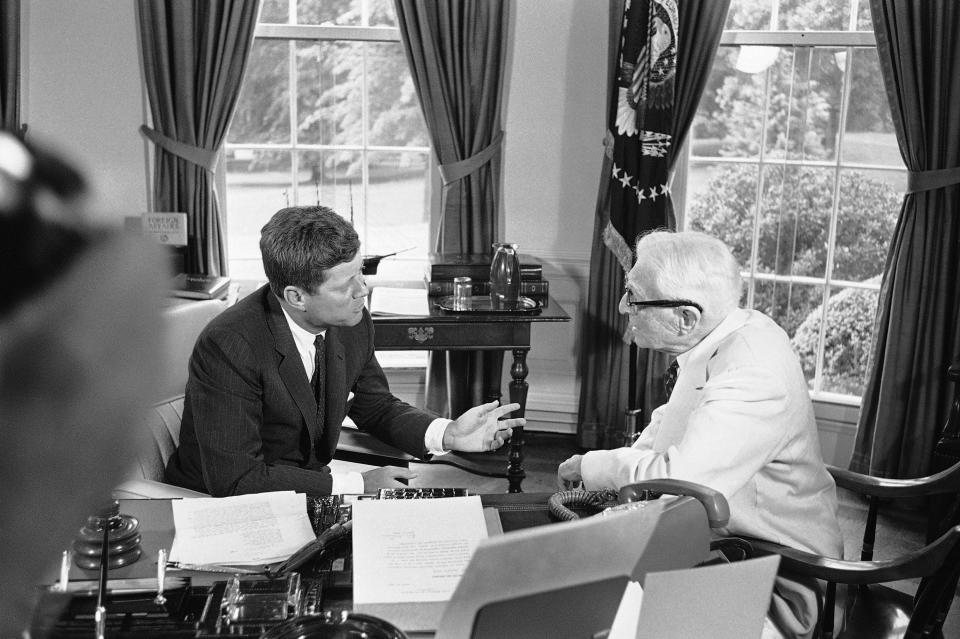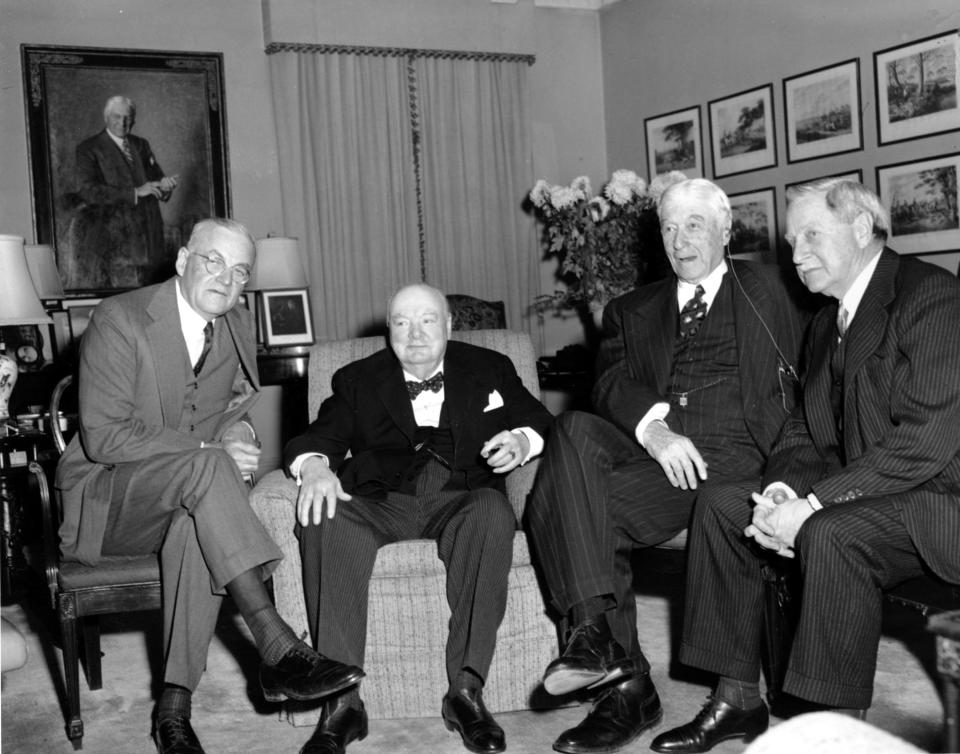Faith of one of our fathers: ‘Why I still believe in the future’
Editor’s note: Ernest “Doc” Werlin is on vacation. His colleagues Bill and Lori Kayser will co-author a guest column until he returns.
Economic concerns, the war in Ukraine, social and cultural issues, the pandemic, political divides and environmental issues are woven into the fabric of our lives. Where do we turn for hope when the domestic and international issues seem so overwhelming?
In 1953, people turned on their radios to hear Bernard Baruch share his words of encouragement, “Why I Still Believe in the Future.” Baruch was a successful financier, statesman and adviser to Presidents Woodrow Wilson, Franklin D. Roosevelt and Harry S. Truman. He was an expert in wartime economic mobilization. During World War I, Baruch became chairman of the War Industries Board, and in World War II, he was a special adviser to the director of the Office of War Mobilization.

My father, Bill Kayser, and I spent our careers as investment advisers. His career spanned 41 years and mine 15 years. During the Great Recession, he provided a copy of Baruch’s “Why I Still Believe in the Future” to remind me to “still believe with courage and intelligence we can make the future bright with fulfillment.”
Bernard Baruch’s wise and timeless words spoken almost 70 years ago:
“When I was a younger man, I believed that progress was inevitable — that the world would be better tomorrow and better still the day after. The thunder of war, the stench of concentration camps, the mushroom cloud of the atomic bomb are, however, not conducive to optimism. All our tomorrows for years to come will be clouded by the threat of a terrible holocaust.
A biography: Bernard Baruch advised every president from Woodrow Wilson to John Kennedy
Going for Baruch: The Nuclear Plan That Refused to Go Away
“Yet my faith in the future, though somewhat shaken, is not destroyed. I still believe in it. If I sometimes doubt that man will achieve his mortal potentialities, I never doubt that he can.

“I believe that these potentialities promise all men a measure beyond reckoning of the joys and comforts, material and spiritual, that life offers. Not utopia, to be sure. I do not believe in utopias. Man may achieve all but perfection.
“Paradise is not for this world. All men cannot be masters, but none need to be a slave. We cannot cast out pain from the world, but needless suffering we can. Tragedy will be with us in some degree as long as there is life, but misery we can banish. Injustice will raise its head in the best of all possible worlds, but tyranny we can conquer. Evil will invade some men’s hearts, intolerance will twist some men’s minds, but decency is a far more common human attribute, and it can be made to prevail in our daily lives.
“I believe all this because I believe, above all else, in reason — in the power of the human mind to cope with the problems of life. Any calamity visited upon man, either by his own hand or by a more omnipotent nature, could have been avoided or at least mitigated by a measure of thought. To nothing so much as the abandonment of reason does humanity owe its sorrows. Whatever failures I have known, whatever errors I have committed, whatever follies I have witnessed in private and public life, have been the consequences of action without thought.
“Because I place my trust in reason, I place it in the individual. There is a madness in crowds from which even the wisest, caught up in the ranks, are not immune. Stupidity and cruelty are the attributes of the mob, not wisdom and compassion.
“I have known, as who has not, personal disappointments and despair. But always the thought of tomorrow has buoyed me up. I have looked to the future all my life. I still do. I still believe with courage and intelligence we can make the future bright with fulfillment.”
Lori Kayser was a registered investment adviser for 15 years with AIG VALIC. She is currently a leadership coach with Xperience, LLC, and co-founder of Team Tony Cancer Foundation. Bill Kayser was an investment adviser for 41 years with the Northern Trust Bank.
This article originally appeared on Sarasota Herald-Tribune: Encouraging words from Bernard Baruch in 1953 remain relevant today
